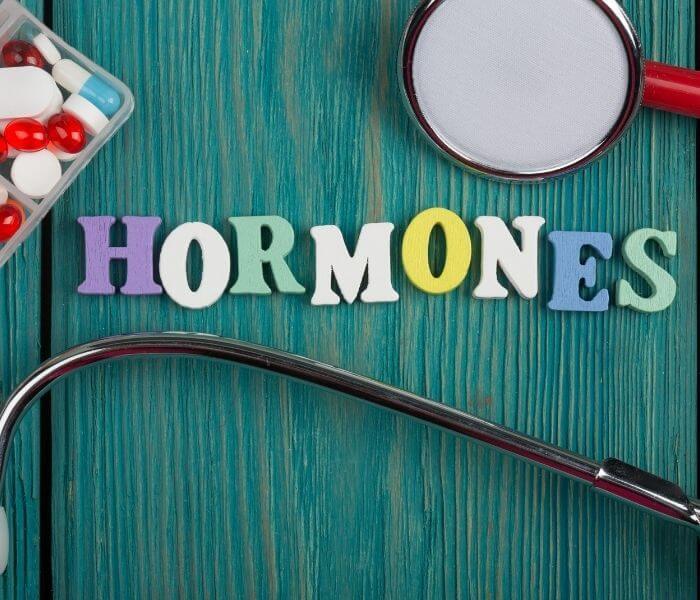
Anti-Müllerian Hormone (AMH) is a crucial indicator of ovarian reserve and reproductive health. For individuals trying to conceive or seeking to understand their fertility status, knowing how to increase AMH hormone levels can be pivotal. This article explores what AMH is, the role of hormone therapy, and how working with a functional doctor can support improvements in AMH levels.
What is AMH Hormone?
Anti-Müllerian Hormone (AMH) is a hormone produced by the granulosa cells of ovarian follicles. It plays a key role in regulating the development of ovarian follicles and is a marker of ovarian reserve, which refers to the number of viable eggs remaining in the ovaries. AMH levels are commonly used in fertility assessments to gauge reproductive potential, especially in women considering fertility treatments or experiencing difficulty conceiving.
Key Points About AMH Hormone:
- Marker of Ovarian Reserve: Higher AMH levels generally indicate a greater number of eggs available in the ovaries, whereas lower levels suggest reduced ovarian reserve.
- Age and AMH Levels: AMH levels naturally decline with age, reflecting the decrease in ovarian follicles over time.
- Health Indicator: Low AMH levels can be associated with conditions such as polycystic ovary syndrome (PCOS) or premature ovarian failure.
What is Hormone Therapy?
Hormone therapy involves the administration of hormones to address imbalances or deficiencies in the body. In the context of improving AMH levels, hormone therapy aims to support ovarian function and overall reproductive health. While hormone therapy does not directly increase AMH levels, it can help create a more favorable environment for the ovaries and enhance fertility outcomes.
How Does Working with a Functional Doctor Provide Support to Improve AMH Hormone Levels?
Functional medicine emphasizes a holistic and personalized approach to health, addressing underlying causes rather than merely treating symptoms. Working with a functional doctor can provide several benefits in improving AMH hormone levels and overall reproductive health:
Comprehensive Hormone Assessment
Functional doctors conduct thorough evaluations to understand the root causes of hormonal imbalances. This includes assessing:
- Medical History: Reviewing personal and family health history to identify potential genetic or environmental factors affecting AMH levels.
- Lifestyle Factors: Analyzing diet, stress levels, sleep patterns, and physical activity that could impact hormonal health.
- Nutritional Deficiencies: Identifying deficiencies or imbalances in key nutrients that support ovarian function.
Personalized Hormone Treatment Plans
Based on the assessment, a functional doctor will develop a customized treatment plan that may include:
- Nutritional Support: Recommending a diet rich in vitamins and minerals essential for hormone health, such as vitamin D, B vitamins, and zinc.
- Supplementation: Suggesting supplements that support ovarian function and overall reproductive health, including DHEA, omega-3 fatty acids, and antioxidants.
- Lifestyle Modifications: Providing guidance on stress management, sleep optimization, and regular exercise to support hormonal balance.
Addressing Underlying Hormonal Conditions
Functional doctors work to identify and treat any underlying conditions that may affect AMH levels, such as:
- Polycystic Ovary Syndrome (PCOS): Managing PCOS symptoms and improving ovarian function through lifestyle changes and targeted treatments.
- Thyroid Disorders: Evaluating and treating thyroid imbalances that can impact hormonal health.
- Autoimmune Conditions: Addressing autoimmune issues that may affect reproductive health and hormone levels.
Integrative Hormone Balancing Approaches
Functional medicine often incorporates complementary therapies to support hormonal balance, including:
- Acupuncture: Used to promote overall reproductive health and balance hormones.
- Herbal Remedies: Utilizing herbs known for their hormone-regulating properties, such as Vitex (chaste tree) and Maca root.
Ongoing Hormone Monitoring and Support
A functional doctor provides continuous monitoring and support, adjusting the treatment plan as needed based on progress and changing health conditions. Regular follow-ups ensure that the approach remains effective and aligned with your health goals.
Conclusion
Increasing AMH hormone levels and improving reproductive health involves a multifaceted approach that includes understanding AMH’s role, exploring hormone therapy options, and working with a functional doctor. By addressing underlying causes, optimizing lifestyle factors, and utilizing personalized treatments, you can enhance your overall reproductive health and better support your fertility goals. If you're looking to improve AMH levels or address fertility concerns, consider consulting with a functional doctor at Tulsi Wellness Club to develop a tailored plan that meets your unique needs.
Dr. RD Marquiss
Contact Me


